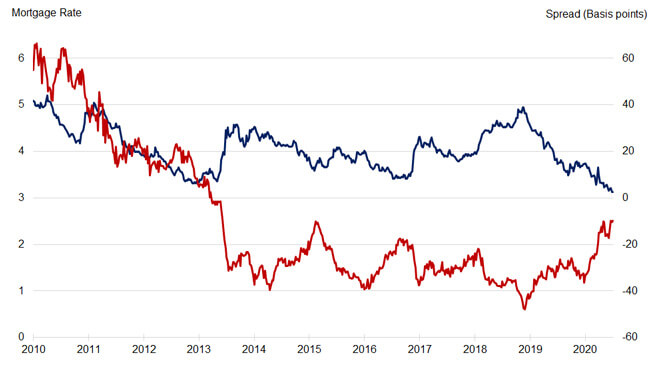Jumbo Loan: Just How to Get Larger Home Funding
Jumbo Loan: Just How to Get Larger Home Funding
Blog Article
Exploring the Benefits and Qualities of Jumbo Loans for Your Following Home Purchase Choice
As the actual estate market develops, comprehending the intricacies of jumbo finances becomes significantly important for prospective homebuyers thinking about high-value residential or commercial properties. To completely value just how big loans can influence your home purchase technique, it is crucial to explore their essential attributes and advantages in greater detail.
What Is a Jumbo Financing?

Jumbo fundings are commonly used by purchasers seeking to buy high-value residential or commercial properties or homes in expensive markets. jumbo loan. Given the larger quantities obtained, lending institutions normally enforce stricter credit rating demands, including higher credit rating, reduced debt-to-income proportions, and larger deposits. The passion rates on big car loans might be somewhat greater than those on adjusting fundings, reflecting the raised danger for lending institutions
In addition, the approval procedure for a jumbo financing can be a lot more complex and taxing, as loan providers need substantial paperwork to assess the consumer's monetary security. Comprehending these subtleties is crucial for possible home owners taking into consideration a jumbo lending for their building funding needs.
Secret Advantages of Jumbo Finances
One considerable advantage of jumbo fundings is their ability to finance higher-priced residential properties that go beyond conforming car loan restrictions. This feature makes them an appealing alternative for customers wanting to buy high-end homes or properties in high-cost areas where prices generally go beyond conventional funding limits.
In addition, big lendings frequently include versatile terms and affordable rates of interest, allowing debtors to customize their financing to fit their distinct monetary situations. jumbo loan. This flexibility can include options for adjustable-rate mortgages (ARMs) or fixed-rate fundings, giving purchasers with the ability to handle their month-to-month settlements according to their choices
One more advantage is that jumbo car loans do not require private home mortgage insurance policy (PMI), which can dramatically minimize the general cost of the car loan. With PMI frequently being a substantial expenditure for traditional car loans with low deposits, preventing it can cause considerable financial savings gradually.
Additionally, borrowers of big financings commonly have access to higher lending quantities, allowing them to buy properties that satisfy their lifestyle requires. This gain access to encourages purchasers to act decisively in affordable actual estate markets, protecting their desired homes a lot more successfully. Generally, jumbo lendings supply crucial benefits for those looking for to fund premium residential or commercial properties.
Eligibility Needs for Jumbo Loans
Jumbo loans feature certain qualification demands that potential borrowers must fulfill to secure funding for high-value homes. Unlike traditional fundings, which have set limitations based upon the adhering finance limits established by government-sponsored entities, jumbo finances exceed these thresholds, requiring more stringent standards.

In addition, big finances commonly demand a considerable deposit, typically ranging from 10% to 20% of the purchase price, relying on the lending institution's policies and the borrower's financial situation. Cash gets are additionally considered, with several lending institutions anticipating customers to have several months' well worth of home mortgage payments readily offered. Detailed documentation of earnings and assets will be required to support the finance application. Meeting these qualification requirements can position debtors favorably in protecting a big lending for their preferred residential property.
Contrasting Jumbo Loans to Conventional Fundings
Recognizing the distinctions in between traditional financings and jumbo lendings is important for homebuyers navigating the high-end property market. Jumbo finances surpass the adapting lending limits set by the Federal Real Estate Money Firm (FHFA), which means they are not qualified for acquisition by Fannie Mae or Freddie Mac. This causes different underwriting requirements and demands for customers.
On the other hand, standard financings typically comply with these limitations, enabling a more structured authorization process. Jumbo loans often call for more stringent credit ratings, bigger deposits, and higher monetary books. For instance, while a traditional financing might require a deposit of just 3% to 5%, big financings usually necessitate a minimum of 10% to 20%.
Interest prices on jumbo loans might vary from those of standard finances, commonly being slightly greater due to the raised danger lenders assume - jumbo loan. The potential for significant funding can be beneficial for customers looking for luxury residential properties. Eventually, recognizing these distinctions allows buyers to make informed decisions, aligning their funding alternatives with their distinct buying needs and monetary conditions
Tips for Securing a Jumbo Funding
Safeguarding a big lending needs cautious preparation and prep work, as lending institutions often impose stricter demands compared to traditional financings. To boost your opportunities of approval, begin by examining pop over to these guys your credit rating and addressing any problems. A score of 700 or greater is normally favored, as it shows creditworthiness.
Next, gather your financial paperwork, consisting of income tax return, W-2s, and financial institution declarations. Lenders typically require detailed evidence of earnings and possessions to examine your capacity to pay off the loan. Maintaining a reduced debt-to-income (DTI) proportion is likewise essential; go for a DTI listed below 43% to improve your application's competitiveness.
Additionally, consider making a larger deposit. Many loan providers look for a minimum of 20% down for jumbo fundings, which not only decreases your finance quantity yet additionally signals financial stability. Involving with a knowledgeable mortgage broker can provide very useful understandings into the procedure and assist you browse various lending institution choices.

Conclusion
In summary, big loans present significant advantages for homebuyers looking for homes that go beyond traditional financing restrictions. Complete understanding of both the advantages and demands linked with big financings is necessary for making informed home acquisition decisions in a competitive genuine estate market.
The passion prices on big financings might be slightly greater than those on adapting financings, reflecting the enhanced threat for lenders.
While a standard loan could call for a down settlement of as little as 3% to 5%, jumbo car loans normally necessitate a minimum of 10% to 20%.
Interest prices on big lendings might differ from those of standard car loans, often jumbo loan being somewhat higher due to the boosted risk lending institutions assume.Protecting a jumbo car loan needs cautious planning and preparation, as loan providers often impose more stringent needs compared to standard car loans. Several loan providers look for at the very least 20% down for jumbo car loans, which not only decreases your funding amount yet also signals monetary stability.
Report this page